South Korean President Removed From Office After Impeachment
South Korea removes a corrupt leader by peaceful means.
Marking the end of an impeachment process that has gone relatively quickly, the President of South Korea has been removed from office even as tensions on the peninsula seem certain to rise due to a North Korea that has been acting increasingly aggressively:
SEOUL, South Korea — A South Korean court removed the president on Friday, a first in the nation’s history, rattling the delicate balance of relationships across Asia at a particularly tense time.
Her removal capped months of turmoil, as hundreds of thousands of South Koreans took to the streets, week after week, to protest a sprawling corruption scandal that shook the top echelons of business and government.
Park Geun-hye, the nation’s first female president and the daughter of the Cold War military dictator Park Chung-hee, had been an icon of the conservative establishment that joined Washington in pressing for a hard line against North Korea’s nuclear provocations.
Now, her downfall is expected to shift South Korean politics to the opposition, whose leaders want more engagement with North Korea and are wary of a major confrontation in the region. They say they will re-examine the country’s joint strategy on North Korea with the United States and defuse tensions with China, which has sounded alarms about the growing American military footprint in Asia.
Ms. Park’s powers were suspended in December after a legislative impeachment vote, though she continued to live in the presidential Blue House, largely alone and hidden from public view, while awaiting the decision by the Constitutional Court. The house had been her childhood home: She first moved in at the age of 9 and left it nearly two decades later after her mother and father were assassinated in separate episodes.
Eight justices of the Constitutional Court unanimously decided to unseat Ms. Park for committing “acts that violated the Constitution and laws” throughout her time in office, Acting Chief Justice Lee Jung-mi said in a ruling that was nationally broadcast.
Ms. Park’s acts “betrayed the trust of the people and were of the kind that cannot be tolerated for the sake of protecting the Constitution,” Justice Lee said.
As the verdict was announced, silence fell over thousands of Park supporters who rallied near the courthouse waving South Korean flags. Soon, they tried to march on the court and called for “destroying” it. When the police blocked them, some of the mostly elderly protesters attacked the officers with flagpoles, hurling water bottles and pieces of the sidewalk pavement. Two pro-Park demonstrators, ages 60 and 72, died during the unrest.
Ms. Park did not comment on the ruling, and remained in the presidential palace after her removal from power. But In Myung-jin, the leader of Ms. Park’s conservative Liberty Korea Party, said he “humbly respected” the ruling.
With the immunity conferred by her office now gone, Ms. Park, 65, faces prosecutors seeking to charge her with bribery, extortion and abuse of power in connection with allegations of conspiring with a confidante, her childhood friend Choi Soon-sil, to collect tens of millions of dollars in bribes from companies like Samsung.
By law, the country must elect a new president within 60 days. The acting president, Hwang Kyo-ahn, an ally of Ms. Park’s, will remain in office in the interim. The Trump administration is rushing a missile defense system to South Korea so that it can be in place before the election.
After the ruling, Mr. Hwang called key Cabinet ministers to put the nation on a heightened state of military readiness, saying the lack of a president represented a national “emergency.” He also warned North Korea against making “additional provocations.”
The last time a South Korean leader was removed from office under popular pressure was in 1960, when the police fired on crowds calling for President Syngman Rhee to step down. (Mr. Rhee, a dictator, fled into exile in Hawaii and died there.)
In a sign of how far South Korea’s young democracy has evolved, Ms. Park was removed without any violence, after large, peaceful protests in recent months demanding that she step down. In addition to the swell of popular anger, the legislature and the judiciary — two institutions that have been weaker than the presidency historically — were crucial to the outcome.
“This is a miracle, a new milestone in the strengthening and institutionalizing of democracy in South Korea,” said Kang Won-taek, a political scientist at Seoul National University.
When crowds took to the streets, they were not just seeking to remove a leader who had one year left in office. They were also rebelling against a political order that had held South Korea together for decades but is now fracturing under pressures both at home and abroad, analysts said.
Ms. Park’s father ruled South Korea from 1961 to 1979. He founded its economic growth model, which transformed the nation into an export powerhouse and allowed the emergence of family-controlled conglomerates known as chaebol that benefited from tax cuts and anti-labor policies.
Ms. Park was elected in 2012 with the support of older conservative South Koreans who revered her father for the country’s breakneck economic growth.
As noted, South Korean law requires a new Presidential election within sixty days after the President’s removal from office, so South Korea will be conducting elections just as the north is seeking to ramp up tensions on the peninsula through its typical propaganda bombasts, missile tests, and, of course assassinations of political opponents or pretty much any North Korean who Kim Jong Un decides he wants to eradicate. No doubt, Kim will continue this course of action during the election and perhaps take other steps to increase tensions. This is why, as the report above indicates, the United States is seeking to expedite the delivery of a new missile defense system to South Korea and get it operational at some point during the election process. While it likely wouldn’t be a perfect defense against a determined North Korean attack, which could do significant damage to the South even as it would essentially mean the end of the Pyongyang regime due to the overwhelming force that could be brought to the north in retaliation, such a move would send a message to North Korea that any action on their part will be met with a response from South Korea and its allies. What impact that may have on the outcome of the vote is, of course, unclear but it’s likely at this point that the biggest loser in the election is likely to be Park’s conservative party, which has now been tainted by her impeachment and removal. Instead, it’s likely that one of the opposition candidates will likely benefit from this and go on to win the election. Since I’m not at all well-versed in South Korean politics, I’m not going to even venture to speculate much beyond this, though.
As the article notes this impeachment trial and Park’s removal are notable for South Korea in more than just the fact that it is the first time it happened in history. Until the relatively recently past, South Korean politics was dominated by authoritarian rulers who routinely engaged in corrupt practices that went largely excused thanks to both the threat from the north and the overwhelming economic success that the nation has experienced in the decades since the Korean War. More recently, though, the Republic of Korea has strived to become more representative and more democratic. In many ways, this impeachment and removal were a significant test of those values and, fortunately, it looks as though the nation came out of it fairly well. This bodes well for the future of South Korea. Now, if they good just do something about the crazy cousin up north.
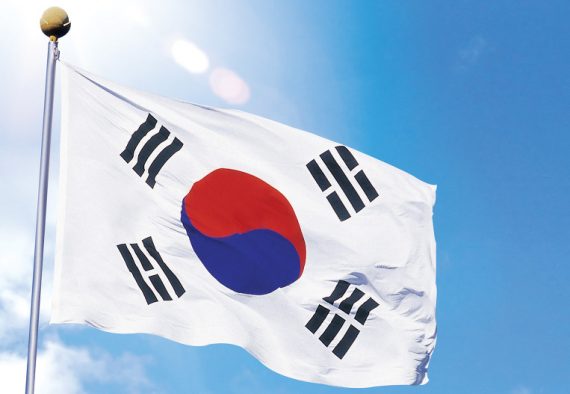

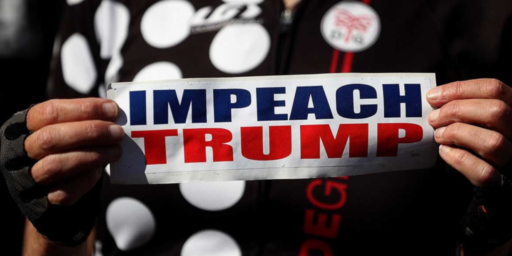
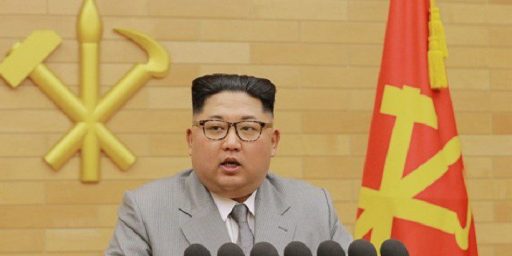
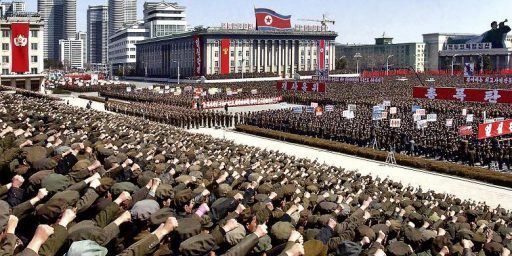

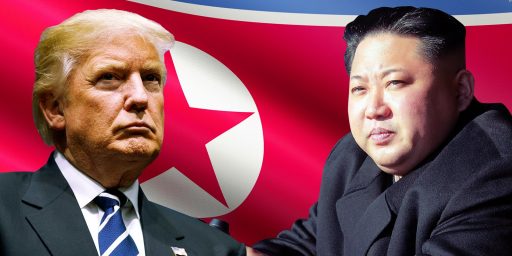
So you’re saying there’s still hope for the US?
FTFY.
Now they have the time to focus on impeaching and removing our president from office.
I have every confidence that it will probably be peaceful.
How quaint! Removing a President due to financial corruption involving an oligarch. Lucky we’re more advanced than that.
@JohnMcC:
blindly allowing a grifting cult leader to influence state affairs.
So much sarcasm.
@rachel: I plead guilty to sarcasm. I take the Lily Tomlin defense: “I try to be cynical but I can’t keep up.”
They were also rebelling against a political order that had held South Korea together for decades but is now fracturing under pressures both at home and abroad
So, Ms. Park is actually closer to Hillary Clinton in the analogy the obvious suspects predictably made and Trump’s election is the equivalent of impeachment. Of course, it can be hard seeing the truth when you’ve crossed both arms over your head to pat yourself on the back.
Mike
@MBunge: I repeat my citation of the Lily Tomlin defense.
@rachel: I was going to weigh in on this story, but you addressed my thinking much better than I could have done. And more succinctly, too. Nice correction! Thank you!